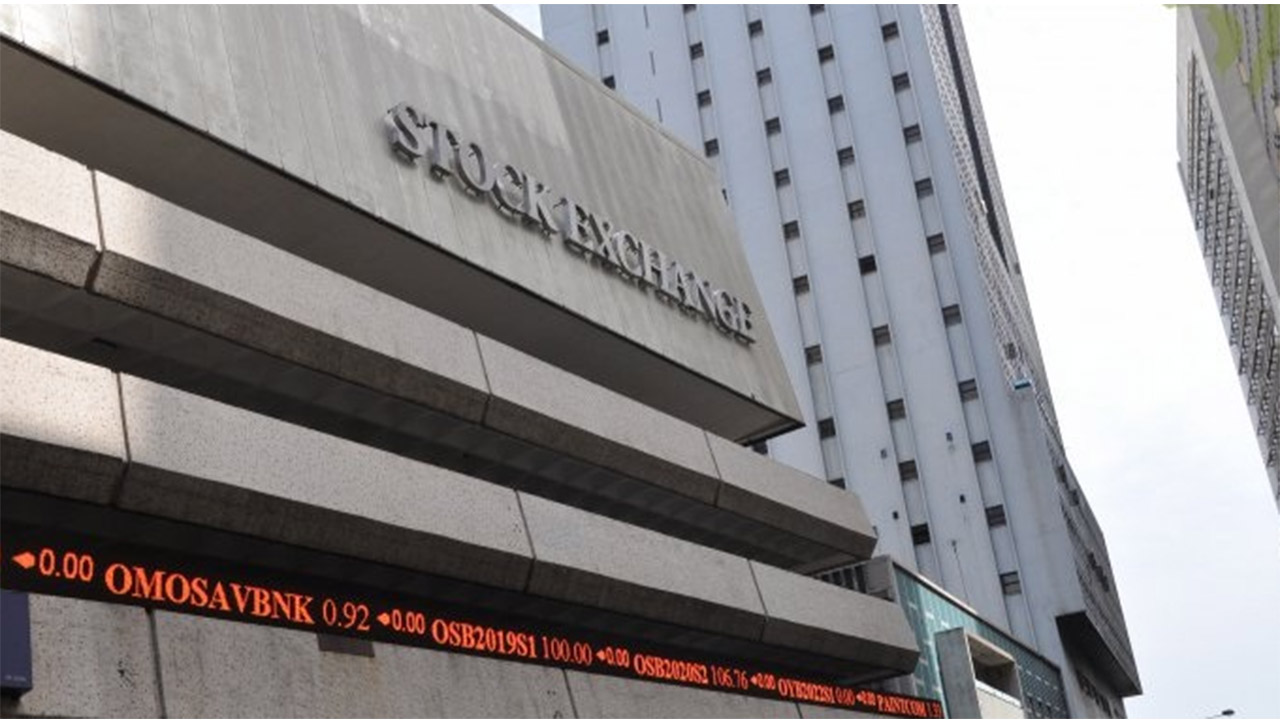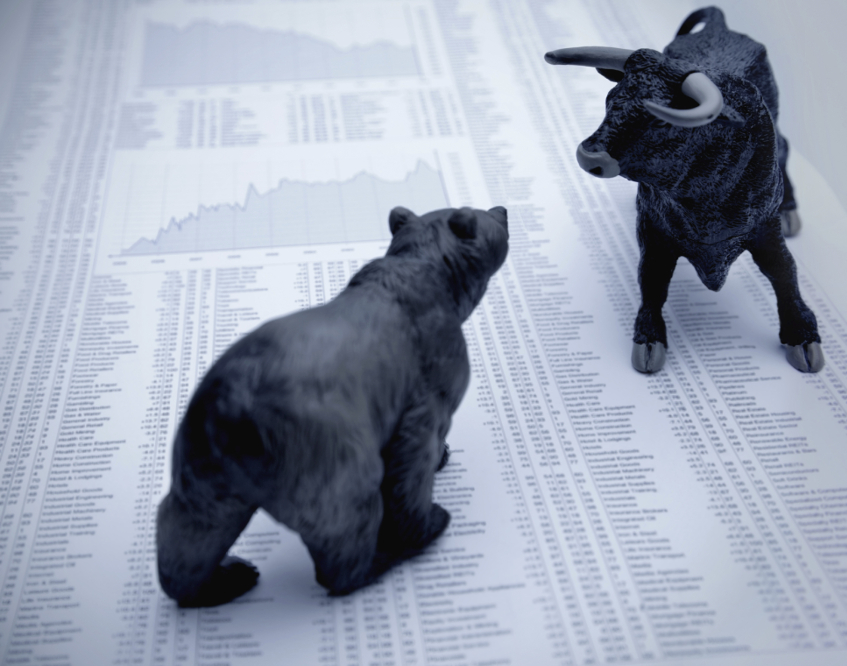Economy
Is Nigerian Equities Market Overvalued?

By Afrinvest Research
Given the challenges faced between H2:2014 and Q1:2017, investors constantly punished Nigerian equities, with sell-offs recorded across various sectors of the market.
Consequently, Nigerian equities were undervalued, in comparison to peers, presenting ample opportunities for investors to take advantage of some of the companies, which turned out impressive results despite the economic challenges.
Following the reforms in the FX market which resulted in increased FX liquidity and a restoration of investor confidence, massive gains were recorded in the market in 2017 and this has been sustained into 2018, up 12.2% (12/01/2018).
With the market now at an all-time high in terms of market capitalisation and the NSE All Share Index at a 9-year high, there are justifiable fears of overvaluation of the market which raises concerns with regards to a near term correction.
Our approach is to diagnose and probe into the fundamentals as well as technical merit of the overvaluation hypothesis.
From our analysis, average Trailing P/E and P/BV for the Nigerian equities market in the last one month as at 17/01/2018 stood at 13.1x and 1.7x, which are lower than 15.1x and 2.0x respectively for the MSCI Frontier markets index.
Looking back to the last 2-year bull market run Nigeria experienced between 2012 and 2013, the Nigerian equities market was priced at a premium to frontier markets peers in the late cycle of the run, as shown in the average P/E and P/BV multiples of the MSCI Frontier Markets index of 12.5x and 1.6x in 2013 relative to 13.5x and 2.2x of the Nigerian market in the same period.
This implies that despite the rally in the market in 2017 and early trading in 2018, current undervaluation of the Nigerian market by valuation multiples and the proven historical valuation premium Nigerian market enjoys in period of boom suggest there are more miles to clock in the market rally.
Hence, against the backdrop of improving macroeconomic conditions as well as positive outlook for corporate earnings, we believe there is a compelling case for investors to sustain interest in the Nigerian equities market as already noticed in the YTD return of 17.4% (17/01/2018).
Our Scenario Analysis in 2018
A review of our market forecast for 2017, shows that actual performance outperformed our bull case scenario, in which we projected that a contraction in the spread between the official and parallel market rates, an increase in oil production to about 2.2mb/d, oil prices between $55/b to $60/b and MPR at 14.0% will result in a 15.6% appreciation in the benchmark index.
Actual performance for 2017 (+42.3%) surpassed our forecast as investor confidence was reinvigorated following the reforms in the FX market and resilient earnings. In 2018, we envisage that market performance will be largely determined by the following factors:
- Earnings fundamental of Corporates;
- Stability in the FX market and other macro indicators; and
- Funds flow dynamics to emerging and frontier markets.
Our analysis of market trend over the past 10 years, makes a case for a possible repetition of history.
As noticed in 2012 and 2013, the periods following the global economic crisis, sentiment in the local bourse strengthened which drove the ASI 35.4% and 47.2% northwards in the respective years.
In a similar situation, as the economy rebounded from the slump – 2014 to 2016 – in 2017, we expect market sentiment to wax stronger in 2018.
In our scenario analysis for the market performance in 2018, we employed a blend of relative valuation in which we benchmarked our market valuation against multiples for peers in the MSCI Frontier market index and absolute valuation based on price forecasts for our coverage universe which is about 86.0% of the entire market.
From our analysis, the Nigerian market has outperformed the MSCI index on the basis of EPS, growing at a CAGR of 12.2% between 2010 and 2017 vs. a 2.1% decline for the MSCI index in the same period.
Similarly, on a P/E basis, the Nigerian market has commanded higher pricing over the MSCI index in 6 of the 8 years under review.
Against this backdrop, we carried out scenario analysis for the performance of the All Share Index in 2018.
Our forecast for the performance of the benchmark index in 2018 is largely positive as our scenarios (bear, base, bull) all signal appreciation in the benchmark index.
On a relative valuation basis, we noted earlier that our expectations for corporate earnings in 2018 is largely optimistic on the back of improving conditions in the operating environment; hence, we assumed an EPS of N3,377.4 as our base case scenario which implies a 13.0% increase from a trailing EPS of N2,988.8 in the prior year.
Our EPS projection was based on the 7-year EPS CAGR for the All Share Index to arrive at the forecast.
For our P/E projection, we compared current pricing in the Nigerian markets against peers for which the MSCI Frontier Markets index was employed.
In order to arrive at our p/e forecast of 14.1x in the base case scenario, we analysed historical P/E multiple of the ASI relative to the MSCI Frontier Index P/E and assumed a 1.0x premium in line with historical valuation spread.
This methodology yielded an All Share Index projection of 47,620.71 points in our base case scenario, which suggests a 24.5% appreciation in the year.
On an absolute valuation basis, we have a more conservative forecast for market performance, albeit still positive.
Based on our 12-month target prices from our coverage universe of stocks – about 86.0% of market cap – relative to 2017 yearend prices, we forecast a 5.6% jump in market capitalisation, implying ASI projection of 40,384.81 points.
Finally, to make a call on market performance for 2018, we adopted a blend of both valuation methodologies. Based on the foregoing, we arrived at an ASI projection of 45,811.73 points for 2018 which is a 19.8% appreciation from 38,243.19 points in 2017.
Our bear case (+7.7% to 41,189.9 points) and bull case (+32.7% to 50,749.10 points) also follow the same trend and further buttress the consensus view of positive market performance in 2018.
Whilst we note that developments in the macro space will also determine overall market performance, we opine that barring any major shocks in the FX market, corporate fundamentals will be a key determinant of overall performance.
Economy
Champion Breweries Concludes Bullet Brand Portfolio Acquisition

By Aduragbemi Omiyale
The acquisition of the Bullet brand portfolio from Sun Mark has been completed by Champion Breweries Plc, a statement from the company confirms.
This marks a transformative milestone in the organisation’s strategic expansion into a diversified, pan-African beverage platform.
With this development, Champion Breweries now owns the Bullet brand assets, trademarks, formulations, and commercial rights globally through an asset carve-out structure.
The assets are held in a newly incorporated entity in the Netherlands, in which Champion Breweries holds a majority interest, while Vinar N.V., the majority shareholder of Sun Mark, retains a minority stake.
Bullet products are currently distributed in 14 African markets, positioning Champion Breweries to scale beyond Nigeria in the high-growth ready-to-drink (RTD) alcoholic and energy drink segments.
This expansion significantly broadens the brewer’s addressable market and strengthens its revenue base with an established, profitable portfolio that already enjoys strong brand recognition and consumer loyalty across multiple markets.
“The successful completion of our public equity raises, together with the formal close of the Bullet acquisition, marks a defining moment for Champion Breweries.
“The support we received from both existing shareholders and new investors reflects strong confidence in our long-term strategy to build a diversified, high-growth beverage platform with pan-African scale.
“Our focus now is on disciplined execution, integration, and delivering sustained value across markets,” the chairman of Champion Breweries, Mr Imo-Abasi Jacob, stated.
Through this transaction, Champion Breweries is expected to achieve enhanced foreign exchange earnings, expanded distribution leverage across African markets, integrated supply chain efficiencies, portfolio diversification into high‑growth consumer beverage categories, and strengthened presence in the RTD and energy drink segments.
The acquisition accelerates Champion Breweries’ transition from a regional brewing business to a multi-category consumer platform with continental reach.
Bullet Black is Nigeria’s leading ready-to-drink alcoholic beverage, while Bullet Blue has built a strong presence in the energy drink category across several African markets.
Economy
M-KOPA Nigeria Plans Expansion to Edo, Others After N231bn Credit Milestone

By Adedapo Adesanya
Emerging market fintech firm, M-KOPA, has announced plans to deepen its reach in Nigeria to the South South and South East regions, starting with Edo this year, after providing N231 billion in credit to over 1 million customers in the country.
The firm released its first Nigeria-focused Impact Report, which showed that Nigeria is M-KOPA’s fastest-growing market and fastest to reach the milestone.
Since its foray into the Nigerian market in 2019, M-KOPA has been working to dismantle barriers to financial inclusion by providing flexible smartphone financing and digital financial tools that align with how people in the informal economy earn and manage their money.
It operates in six states in the country, including Lagos, Ogun, and Oyo, among others.
The report highlights the company’s contribution to income generation, digital inclusion and economic opportunity for Every Day Earners across the country.
The report showed that M-KOPA has enabled 290,000 first-time smartphone users, while 56 per cent of agents accessed their first income opportunity through the platform.
It showed high income and livelihood gains among its users, with about 77 per cent of customers leveraging smartphones or digital loans obtained through the platform to generate income, indicating that access to financed devices is directly supporting micro-entrepreneurial activity and informal sector productivity.
Furthermore, 75 per cent of users report higher earnings since gaining access to M-KOPA’s services, suggesting measurable improvements in personal revenue streams. On the distribution side, 99 per cent of agents disclose increased earnings, reflecting positive spillover effects across the company’s value chain.
In addition, 81 per cent of long-term customers state that their household expenses have improved, pointing to enhanced financial stability and better consumption smoothing over time.
Speaking on the report, Mr Babajide Duroshola, General Manager, M-KOPA Nigeria, said, “Nigeria represents extraordinary potential, and we’re proud that it has become M-KOPA’s fastest-growing market. Our Impact Report shows that when Every Day Earners gain access to the right digital and financial tools, they use them to create stability and long-term progress for their families. This is about access that unlocks opportunity and sustained prosperity.”
On its expansion plans Nigeria-wide, the M-KOPA helmsman said, “Many of the states we are considering are already similar to the ones we are currently in proximity… So, there is proximity and similarity between these states, and that’s what we are going to do, starting with Edo.”
He noted that as M-KOPA Nigeria continues to expand, the focus remains on ensuring more everyday earners gain access to the digital and financial tools they need to build resilient, prosperous futures in Nigeria’s rapidly digitising economy.
Economy
Tinubu Okays Extension of Ban on Raw Shea Nut Export by One Year

By Aduragbemi Omiyale
The ban on the export of raw shea nuts from Nigeria has been extended by one year by President Bola Tinubu.
A statement from the Special Adviser to the President on Information and Strategy, Mr Bayo Onanuga, on Wednesday disclosed that the ban is now till February 25, 2027.
It was emphasised that this decision underscores the administration’s commitment to advancing industrial development, strengthening domestic value addition, and supporting the objectives of the Renewed Hope Agenda.
The ban aims to deepen processing capacity within Nigeria, enhance livelihoods in shea-producing communities, and promote the growth of Nigerian exports anchored on value-added products, the statement noted.
To further these objectives, President Tinubu has authorised the two Ministers of the Federal Ministry of Industry, Trade and Investment, and the Presidential Food Security Coordination Unit (PFSCU), to coordinate the implementation of a unified, evidence-based national framework that aligns industrialisation, trade, and investment priorities across the shea nut value chain.
He also approved the adoption of an export framework established by the Nigerian Commodity Exchange (NCX) and the withdrawal of all waivers allowing the direct export of raw shea nuts.
The President directed that any excess supply of raw shea nuts should be exported exclusively through the NCX framework, in accordance with the approved guidelines.
Additionally, he directed the Federal Ministry of Finance to provide access to a dedicated NESS Support Window to enable the Federal Ministry of Industry, Trade and Investment to pilot a Livelihood Finance Mechanism to strengthen production and processing capacity.
Shea nuts, the oil-rich fruits from the shea tree common in the Savanna belt of Nigeria, are the raw material for shea butter, renowned for its moisturising, anti-inflammatory, and antioxidant properties. The extracted butter is a principal ingredient in cosmetics for skin and hair, as well as in edible cooking oil. The Federal Government encourages processing shea nuts into butter locally, as butter fetches between 10 and 20 times the price of the raw nuts.
The federal government said it remains committed to policies that promote inclusive growth, local manufacturing and position Nigeria as a competitive participant in global agricultural value chains.
-

 Feature/OPED6 years ago
Feature/OPED6 years agoDavos was Different this year
-
Travel/Tourism10 years ago
Lagos Seals Western Lodge Hotel In Ikorodu
-

 Showbiz3 years ago
Showbiz3 years agoEstranged Lover Releases Videos of Empress Njamah Bathing
-

 Banking8 years ago
Banking8 years agoSort Codes of GTBank Branches in Nigeria
-

 Economy3 years ago
Economy3 years agoSubsidy Removal: CNG at N130 Per Litre Cheaper Than Petrol—IPMAN
-

 Banking3 years ago
Banking3 years agoSort Codes of UBA Branches in Nigeria
-

 Banking3 years ago
Banking3 years agoFirst Bank Announces Planned Downtime
-

 Sports3 years ago
Sports3 years agoHighest Paid Nigerian Footballer – How Much Do Nigerian Footballers Earn
















